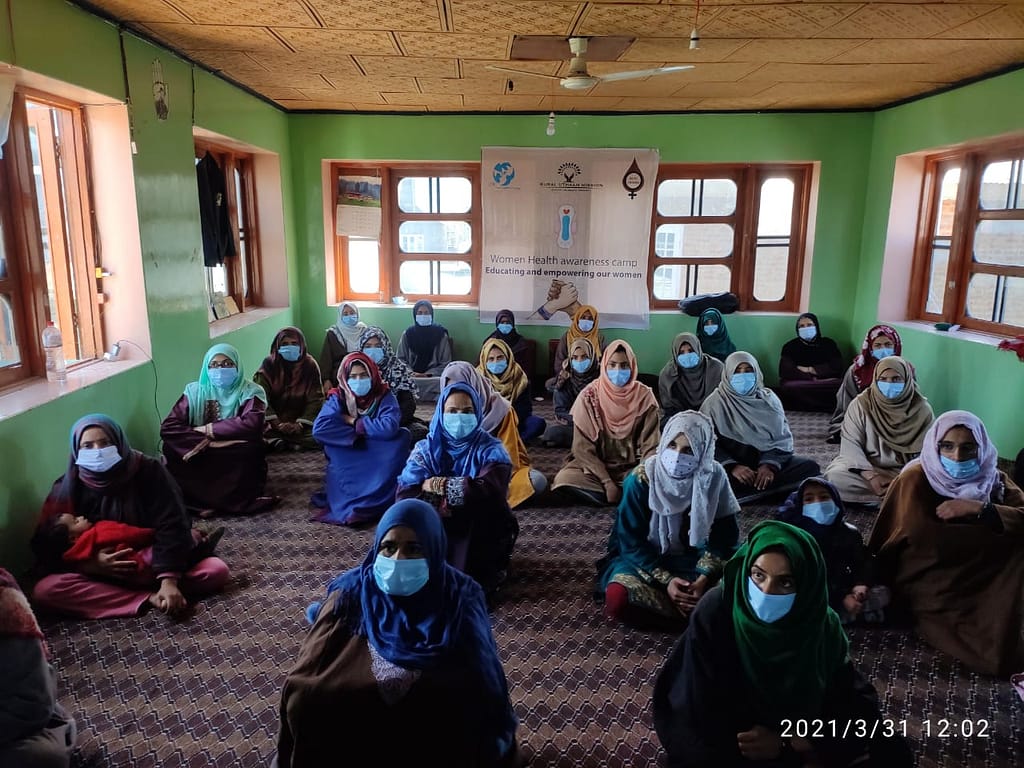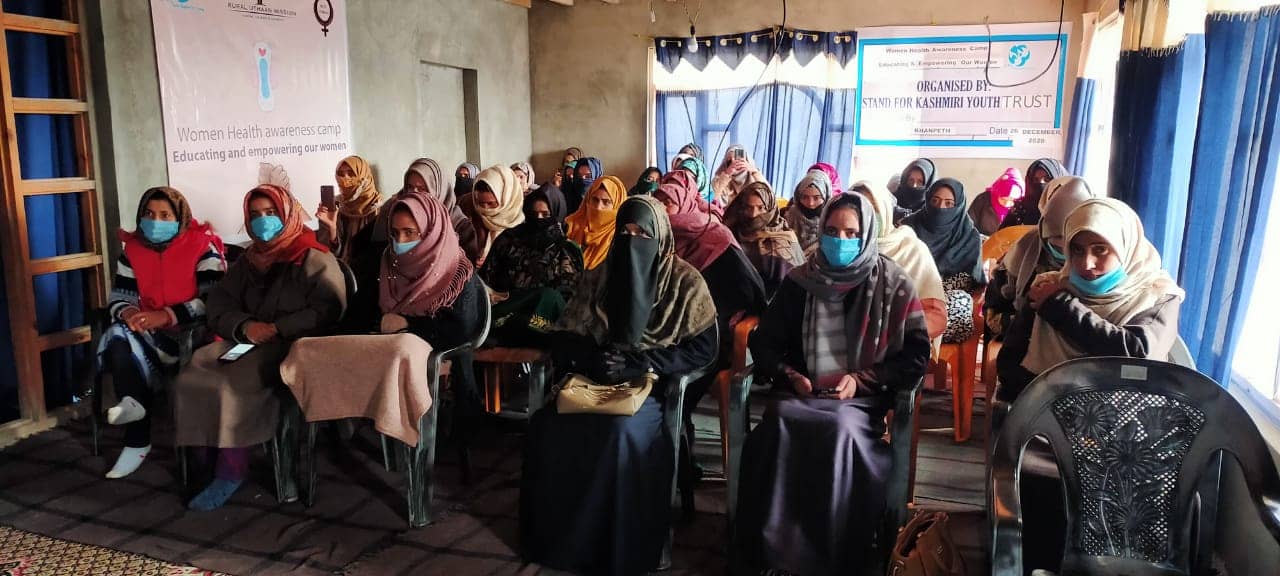By Zahida Ahanger of SKY TRUST KASHMIR– Zahida is a welfare worker by choice who hails from small town Pattan of Kashmir and her passion is to work for marginalized section of society. Email: ahangerzoya121@gmail.com
In a tussle between science and irrationality, it is the latter that has found more acceptances in our society. In a patriarchal setup, where everything is governed and controlled by men, so are myths and taboos revolving around Menstrual Cycle. Women have been most targeted and isolated when they accept menstrual cycle as a natural phenomenon and openly talk about it. There’s an army of moral, religious and cultural beliefs that are ready with the daggers. Why is there so much fuss around menstruation? Why are women abstained from talking about it in the public spaces? And there are so many other questions that haunt a female in any society.
Menstruation is the monthly shedding of the lining of a woman’s uterus. It comes every month with an avalanche of blood and anxiety. According to science menstrual cycle is a set of natural changes in hormone production and the structures of the uterus and ovaries of the female reproductive system that make humankind possible. Science says it is the only way of human procreation. Despite being a normal process it has always been surrounded with taboos and myths that somehow have impacted the emotional, mental and physical health in women.
In this blog I will be writing about myths associated with menstruation in Kashmir, reasons behind myths and strategies to combat menstruation related myths.
Like in other societies of the globe, menstruation is surrounded by an army of myths in Kashmir too. This can be perhaps better understood by this fact that even talking about menstruation has been a taboo. The nature of society could easily be embedded by the datum that women are ashamed of talking about periods in groups and before men or their male friends. Though the taboo of dirty in somehow have radically declined in towns and cities but menstruation is still considered to be dirty in various rural areas. It is in this context that according to some cultural beliefs,Women must refrain from cooking during periods as touching them during periods will make them impure. Even in rural areas, women lack safe spaces where they can openly talk about periods and related issues. They are unaware about safe menstrual hygiene practices and sustainable menstruation solutions. Majority of rural women of Kashmir still use filthy cloth pieces as absorbent during periods because of many reasons. One of the main reasons behind not using any sanitary product during periods is shyness. They feel ashamed of buying sanitary napkins.
“I want to use the sanitary napkins but after using it I face problem of disposal. I don’t find a place where I can bury it and I am always surrounded by male family members that increases in my shyness. I have now stopped using sanitary napkins and switched to old practice of using folded cloth piece”
As narrated to this author by a young girl, Sameera Akhter from kashmir
Religious beliefs are also a reason behind myths associated with periods. According to these beliefs a women can’t do any kind of prayer and should not visit shrines till they are purified. Also, majority of rural women of Kashmir pretend to be on fast during Ramdhan (a month of fasting for Muslims). Menstruating women wake up early for the Suhoor (midnight) and eat food as others do and after male family members leaves the home they get a chance to eat or drink before their return.“According to Islam, a woman can nourish her body with food and still perform number of Ibbadah (prayers). A woman can recite The Quran and do Zikr and make Dua.”Thus keeping the above mentioned quote in mind women during periods should not be considered unholy or cursed or untouchable and that is what Islam teaches us.
Likewise women due to lack of awareness still believe what their elder women have taught or preached them about periods. They believe our older generations had no period related problems and diseases but the fact is they had not proper medical facilities available hence disease due to unsafe hygiene practices remained unnoticed and unrecorded. Even in 21th century, many women in rural areas still use dirty cloth pieces as absorbent during periods and believe bathing during periods causes inflammation of lower abdomen. In in some cases they believe some pores remains open during periods and one should not use shampoo. Similarly menstruating women also avoid eating certain food such as curd, pickle, tomatoes etc. because they belief it causes problems to ovaries.
As discussed earlier there are multiple reasons and myths associated with it and one of the major reasons is the High Illiteracy rate. Unfortunately in schools teachers skip the topic of reproductive health or do not discuss the topic openly because they get intimidated due to the presence of students (whether male or female) in the class. Similarly Women lack basic knowledge about menstruation, they do not know what periods are and where from period blood comes and why it comes? There is a wrong belief among majority section of the females that it is dirty blood which comes out every month. Thus women are unaware of their anatomy which leads to different misconceptions and myths in society. Likewise they are unaware about menstrual hygiene practices and are hardly vested in knowing its genesis. This unawareness has contributed in various reproductive tract infections and other infectious diseases.
Some important recommendations

Education plays a pivotal role in bringing a positive change in the society. With the increased literacy rate myths and taboos will get busted. It is in this context that menstruation should be taught as a topic in schools to both boys and girls to sensitize the male folk regarding same. In Teacher trainings the problem should be discussed to aware and sensitize teachers regarding importance of menstrual health. In schools teachers should discuss the topic of menstruation openly and elaborate it for better understanding and mitigating taboos related to periods. Awareness programmes can be beneficial for busting myths associated with menstruation. By giving a logical answer will also help. Also low cost sanitary napkins can be locally made by women that will not only empower women financially and socially but making low cost sanitary napkins available where access to the product is difficult can help end period poverty. Thus there is a dire need for spreading awareness about the mensuration and the sooner we as a society will do that the better it is.


